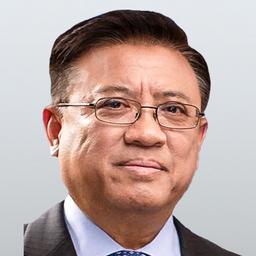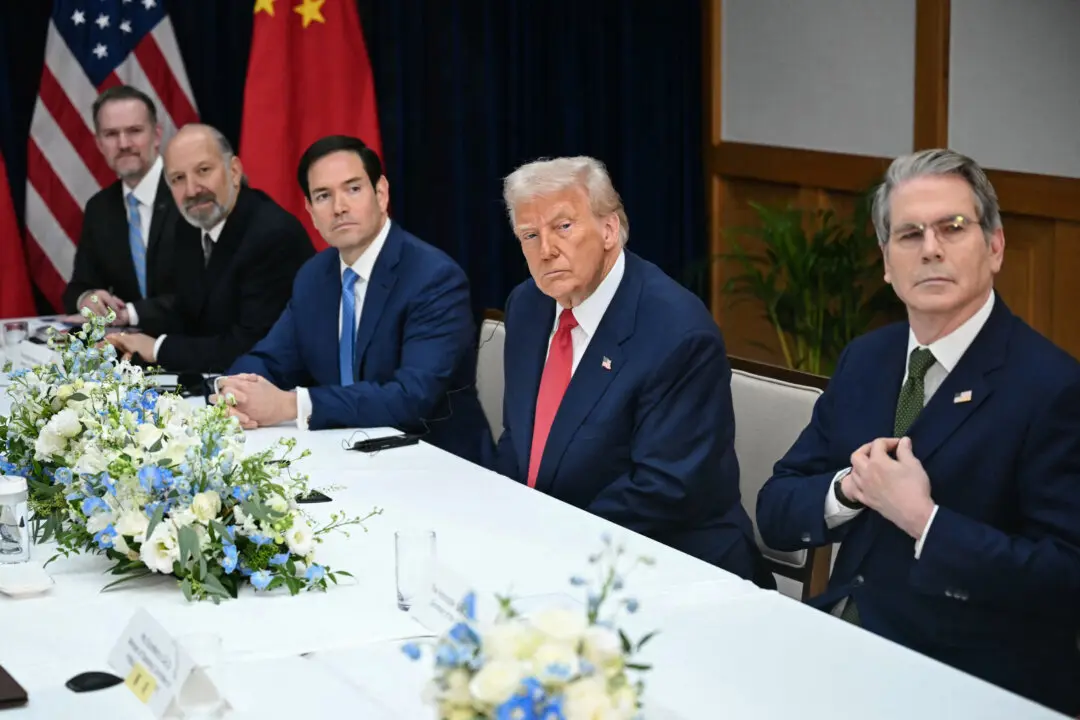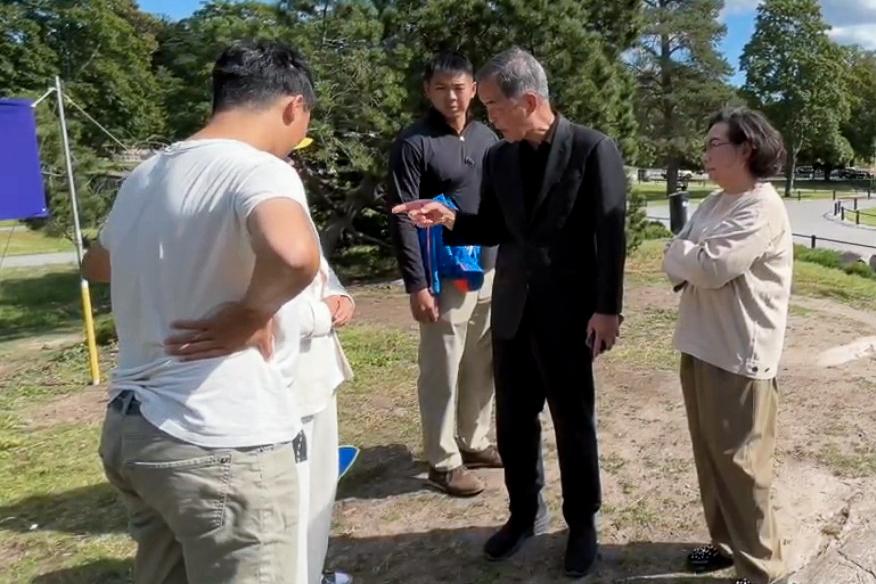A recent Reuters article proclaimed in its headline that the Chinese regime’s former security boss was not the target of investigation by the Chinese Communist Party (CCP). If true, this would be a scoop contradicting reports by other Western news outlets and Chinese-language news outlets outside China that Zhou Yongkang was being investigated.
Rather than being the target, Zhou Yongkang was “helping” the probe into his former associates, Reuters said. In fact in Chinese politics, if you are helping the probe, that means you are in trouble.
In the investigation, Zhou is said to be helping Party chief Xi Jinping in rolling up Zhou’s top aides along the path he trod to power: through Sichuan Province, the oil industry, and as the regime’s top security officer.
More than 10 officials at the province and ministry-level have been investigated, disciplined, or indicted. Most of them are from Sichuan Province, where Zhou Yongkang served as head of the Party, and PetroChina, the oil industry where he started and through whose ranks he rose.
Zhou’s final position in the oil industry was as CEO of PetroChina. Even after many years, he still oversees PetroChina through those he promoted who are still loyal to him. There is a famous expression in those circles, “They only listen to Zhou Yongkang.”
Early this month, when Jiang Jiemin, the former general manager of PetroChina, was taken away for investigation on charges of corruption and abuse of power, along with four other oil executives, many people knew then that Zhou is in trouble.
Two months earlier, Guo Yongxiang was taken away by the Central CCP Discipline Committee. Guo’s career overlaps Zhou Yongkang’s, from PetroChina to Sichuan Province. For more than a decade, from the early 1990s to the early 2000s, Guo was Zhou’s secretary. If someone wants to find a skeleton in Zhou’s closet, the best person to question is Guo Yongxiang.
Last week, Hong Kong-based Mirror News exclusively reported that Cao Jianming, the procurator-general of the PRC’s Supreme People’s Procuratorate, and Li Dongsheng, the vice minister of Public Security, were under investigation.
From Pen to Gun
These investigations show Party central is now digging into the most powerful source of Zhou Yongkang’s political power: his role heading up the domestic security forces. Both Cao and Li are members of the CCP Central Committee’s Political and Legal Affairs Committee (PLAC), which Zhou headed until the change in leadership at last year’s 18th Party Congress in November 2012.
For many Westerners, the name Li Dongsheng is not well known. Actually, many Chinese don’t know who he is either. They should, as he has played a leading role in the most important event in China in the past decade 14 years—the persecution of Falun Gong.
Li was the vice director of the notorious CCP mouthpiece CCTV from 1993 to 2000. During that period, he created and oversaw one of CCTV’s most important programs, Focus Talk. Then he was promoted to deputy director of the State Administration of Radio, Film, and Television, which oversees CCTV.
Two years later, Li was promoted again. This time, he was made the deputy director of the Propaganda Department of the CCP Central Committee. Thus far, his career track stayed inside the CCP’s propaganda section.
However, in October 2009, Li Dongsheng was named to be a member of the Party Committee of Ministry of Public Security (MPS), then the vice minister of Public Security and a member of the CCP Central Committee.
This change in careers is very rare in the CCP. The CCP has two weapons, the pen and the gun. The pen represents propaganda, while the gun represents the machinery of state repression, including the military and the police force.
Even though these two serve the same purpose, preserving the CCP’s rule, their functions are totally different, and moving personnel from one to the other is difficult to do.
Political Correctness and Corruption
According to Mirror News, Li Dongsheng was promoted to vice minister of Public Security because he used female hostesses and reporters to bribe Central CCP leaders, including Zhou Yongkang and Cao Jianming, with sex. The sexual bribery surely helped grease the way for Li’s appointment as vice minister, but his experience in persecuting Falun Gong was key.
In June 1999, when then-paramount leader Jiang Zemin began laying the groundwork for the campaign against Falun Gong, he had to establish a new chain of command to bypass the law. He established a leadership team to lead the campaign and an office to do the daily work. The office was called the 610 Office after the day it was founded, June 10.
There were two deputy directors in that office. Liu Jing, then the vice minister of Public Security, represented the gun, while Li Dongsheng, then the vice director of CCTV, represented the pen. During the early stages of the persecution of Falun Gong, Li Dongsheng was responsible for the high-pressure propaganda demonizing the practice, including more than 100 episodes of Focus Talk.
Even when Liu Jing took the position of director of the 610 Office, Li Dongsheng still kept his position, mostly behind the scenes, coordinating the media in the propaganda campaign against Falun Gong.
When Liu Jing was diagnosed with cancer, Li Dongsheng became the sole candidate to succeed Liu. Li Dongsheng knew how the 610 Office operated, and he had shown his loyalty to Jiang Zemin and Zhou Yongkang and their policy of persecution.
A further recommendation: He was totally corrupt. He was notorious for his taste in female hostesses and reporters. He had made Focus Talk the most lucrative TV program by selectively not broadcasting investigative programs about corrupt officials and dishonest businesses.
Political correctness plus corruption—what a perfect combination for the new director of the 610 Office.
Degrading Zhou’s Support
There was a small problem, though, in elevating Li Dongsheng. Since 2005, the main CCP mouthpieces had mostly stopped carrying out the propaganda campaign against Falun Gong. The CCP didn’t want the Chinese people to think that a group had survived persecution, and international pressure made it preferable to keep the persecution quiet.
So the main task of the 610 Office was the gun—the violence against Falun Gong practitioners by the police, the prisons, and the labor camps. Could Li Dongsheng, whose entire experience had been in propaganda, deploy those task forces for the persecution?
Now the relationship between Zhou Yongkang and Li Dongsheng becomes clearer. Zhou was promoted from chief of the Sichuan Province CCP, to the minister of Public Security in 2002, also without any previous experience in the security forces.
Jiang Zemin was not satisfied with the former minister of Public Security’s work on persecuting Falun Gong. He needed his own man, someone he could trust on that issue. In the meantime, Zhou became the deputy secretary of the PLAC and deputy chief of the leadership team for Falun Gong issues.
In other words, Zhou Yongkang had been Li Dongsheng’s direct boss since 2002. When Zhou replaced Luo Gan as the head of both PLAC and the leadership team in 2007, he needed his own man, someone he could trust, to head the 610 Office. He chose Li Dongsheng.
The corruption of both Zhou Yongkang and Li Dongsheng has been protected by their political power. Their power came from the persecution of Falun Gong and later from the Maintaining Stability system, which is an extension of the persecution.
However, the political power of the PLAC and Zhou Yongkang became so strong that CCP leaders decided they had to deal with it. That’s why we see the anti-corruption campaign targeted at the high-ranking officials who followed Zhou Yongkang’s career footsteps, from the oil industry to Sichuan province, to the PLAC.
Reuters reported that Zhou Yongkang is not targeted for investigation because Xi Jinping probably still needs more support from the Politburo and the Party’s elder leaders. By methodically investigating the top officials loyal to Zhou, Xi Jinping is degrading Zhou’s support and power and bringing closer the day that Zhou takes his turn standing trial for corruption.
Zhou’s crimes as security boss against the Chinese people will not be forgotten, even though they are not likely to be brought up officially.





